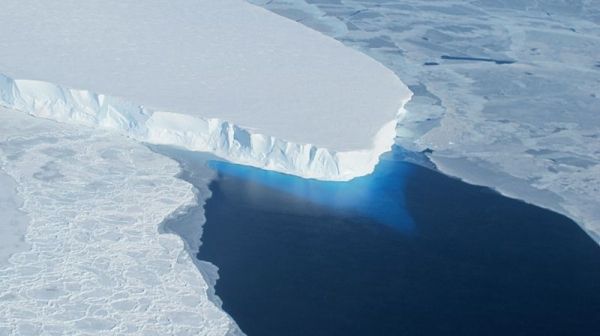Antarctica’s Thwaites Glacier is retreating rapidly as a warming ocean slowly erases its ice from below, leading to faster flow, more fracturing, and a threat of collapse, according to an international team of scientists. The glacier is the size of Florida or Britain and currently contributes four percent of annual global sea level rise. If it does collapse, global sea levels would rise by several feet—putting millions of people living in coastal cities in danger zones for extreme flooding.
“Thwaites is the widest glacier in the world,” said Ted Scambos, a senior research scientist at the Cooperative Institute for Research in Environmental Sciences (CIRES). “It’s doubled its outflow speed within the last 30 years, and the glacier in its entirety holds enough water to raise sea level by over two feet. And it could lead to even more sea-level rise, up to 10 feet, if it draws the surrounding glaciers with it.”
Scambos is the U.S. lead coordinator for the International Thwaites Glacier Collaboration (ITGC): a team of nearly 100 scientists funded by the U.S. National Science Foundation and U.K. Natural Environmental Research Council dedicated to studying the vulnerable glacier. The five-year collaboration is aimed at collecting instrument data throughout the glacier and the adjacent ocean, and modeling ice flow and the future of the ice sheet. Their work has revealed major changes in the ice, the surrounding water, and the area where it floats off the bedrock below.
Continue reading at Cooperative Institute for Research in Environmental Sciences
Image via Cooperative Institute for Research in Environmental Sciences


